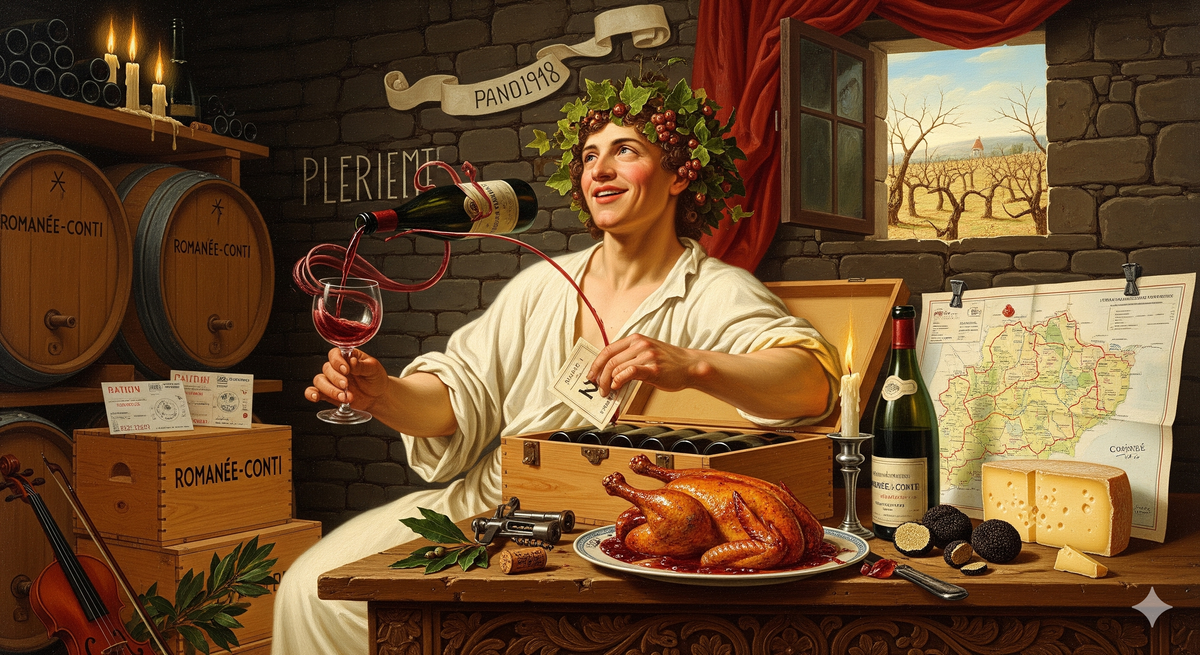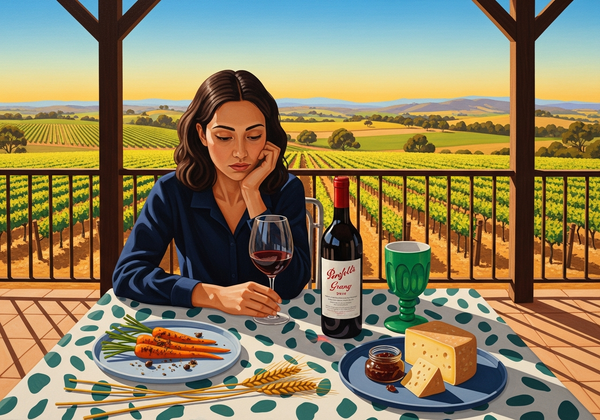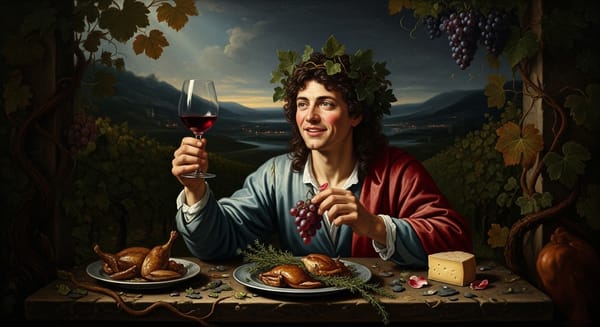The Year The Gods Ran Dry: Drinking Romanée-Conti 1945 Without Blinking
Romanée-Conti 1945 is Burgundy’s wartime swan song—silk, truffle, rose, endless finish. Scarce, storied, and worth the pilgrimage.

I didn’t crack Romanée-Conti 1945 for a cozy Tuesday; I opened it to find out whether time can still bleed. Burgundy in ’45 was stitched together with ration paper and stubborn hands, and this tiny square of earth put that year in a bottle with a straight face. The cork sighs, the room cools a degree, and suddenly there’s rose tea, old library dust, and the clean edge of citrus oil—no fireworks, just authority. This isn’t a trophy; it’s a survivor in evening wear, and it will make even the loudest table shut up and listen.
Lantern Light In The Chalice
Color? Think faded velvet opera curtain—translucent garnet at the core, a fragile brick rim like old monastery tiles. The perfume lifts before the cork is fully free: dried rose, black tea, warm loam after rain, truffle shaving, orange pekoe, a whisper of soy and sandalwood cigar box. Not loud, just inexorable. Give it a minute and it unfurls saffron, quince peel, and something like clean linen hung in a Vosne breeze. It’s Burgundy speaking in sepia, yet nothing feels tired. It’s alive the way cathedral stones are alive.
The Long March On The Palate
First sip is silk that remembers it was once armor. The attack is feather-soft but resolute; acidity threads through like a violin string tugging you upright. Flavors travel in formation: macerated black cherry, cranberry leather, porcini stock, Szechuan pepper tingle, then a sweet-savory umami that makes you suddenly, stupidly hungry. Tannins are the definition of manners—fine, powdery, dignified—more handshake than fist. The finish lasts embarrassingly long: iron filings, rose oil, black tea, and an after-image of cherry stone that hangs like a benediction. It’s elegance sharpened by scarcity; grace forged in ration years.
Ashes, Ivy, And A Single Hectare
Behind the label is a vineyard small enough to pace in an argument and still be heard. In 1945, the world stitched itself back together; Burgundy did it with pruning shears and hope. Yields were microscopic; bottles were hand-numbered; the ancient vines were living on borrowed time—ripped out shortly after, their swan song caught in glass. That’s why this vintage tastes like a farewell note and a rallying cry at once. It’s not “good for the year.” It is the year, distilled: disciplined, concentrated, and unreasonably beautiful.
How To Serve A Legend Without Screwing It Up
Don’t get clever. Bring it to 57–60°F (14–16°C). Stand the bottle upright a full day if you can. Decant only to dodge sediment, and gently—think “steal the jewel, don’t trip the alarm.” Twenty minutes of air, then into large Burgundy stems where the rim can catch light and your friends can catch feelings. Food? Keep it humble, reverent, and savory. Roast Bresse chicken with its own jus, a truffled pomme purée that behaves itself, butter-basted pigeon, or a wild-mushroom risotto that tastes like October. Cheese? A thin shard of 36-month Comté or aged Époisses pushing into funk but not mutiny.
Why This Bottle Owns The Room
Scarcity you can count on your fingers, provenance that needs to be bulletproof, and a last-of-its-kind pedigree. The 1945 Romanée-Conti is the final pre-replanting chapter, and collectors don’t buy chapters like this to read later—they lock them in vaults and argue about them at dinner. Age potential? We’re well past “potential.” What matters now is condition. A bottle kept like a reliquary will still sing—not loud, but perfectly pitched. Value is a blunt instrument here: it’s cultural currency, a story you can pour, proof that history occasionally rewards obsession. If you ever get the chance to buy authentic 1945 RC from unimpeachable hands, the only real question is whether you want to be the person who said no.
Final Note From The Ivy-Crowned Trouble-Maker
Pass on this and you’ll invent bedtime stories to soothe yourself. Say yes and you’ll join the small, smug club of people who learned that some wines don’t need superlatives—they need silence after the last sip. Opportunities like this don’t knock; they look you in the eye and dare you to blink.





